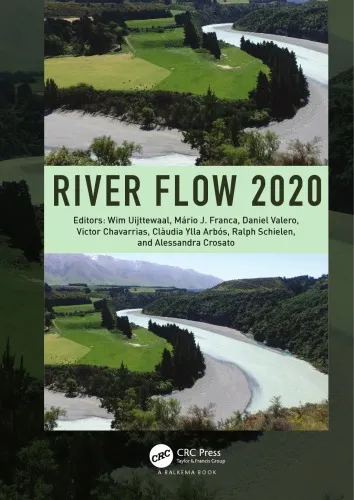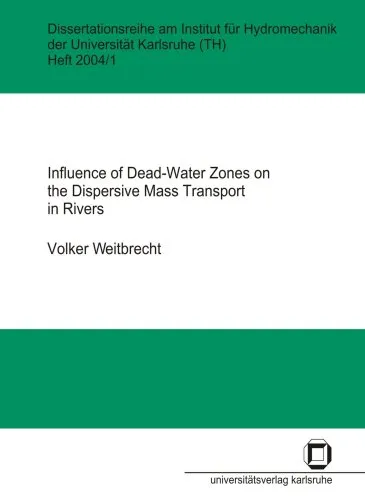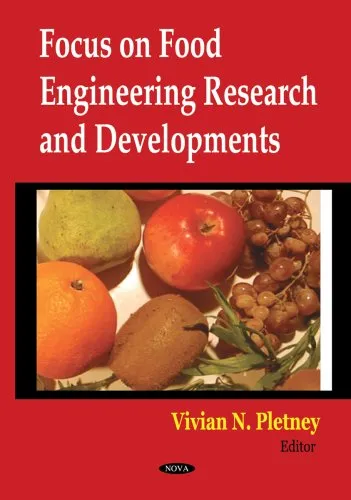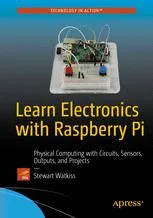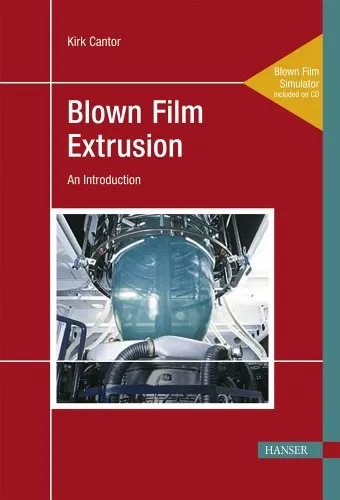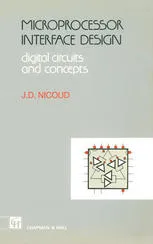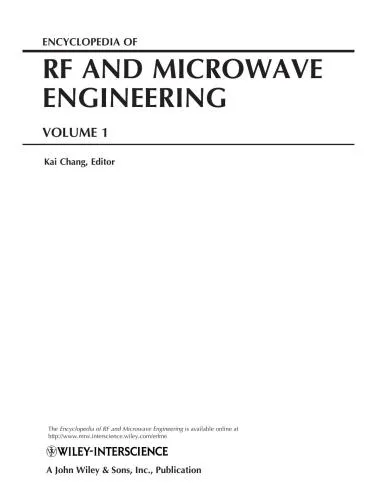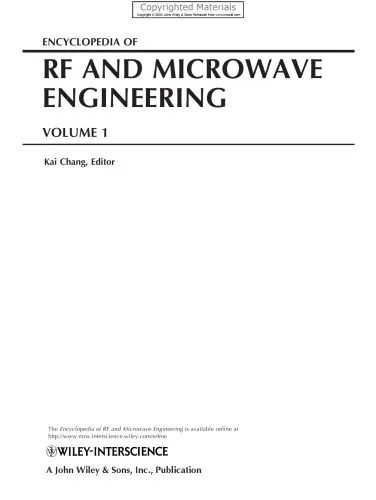River Flow 2020: Proceedings of the 10th Conference on Fluvial Hydraulics (Delft, Netherlands, 7-10 July 2020)
3.8
Reviews from our users

You Can Ask your questions from this book's AI after Login
Each download or ask from book AI costs 2 points. To earn more free points, please visit the Points Guide Page and complete some valuable actions.Related Refrences:
Introduction to 'River Flow 2020: Proceedings of the 10th Conference on Fluvial Hydraulics'
"River Flow 2020: Proceedings of the 10th Conference on Fluvial Hydraulics" is a comprehensive collection of research, case studies, and practical applications that delve into the field of fluvial hydraulics. This book captures the rich discussions and high-quality scientific contributions presented during the 10th Conference on Fluvial Hydraulics, held in Delft, Netherlands, from July 7-10, 2020. This seminal event brought together experts from around the globe, facilitating knowledge exchange on key topics that influence rivers, their mechanics, and the interplay with human activities and ecosystems.
The book highlights the interdisciplinary approaches taken to address real-world problems in river hydraulics and showcases cutting-edge methodologies, models, and technologies applied in this domain. Whether you are a researcher, practitioner, policymaker, or student, this publication provides valuable insights into the challenges and opportunities in understanding, modeling, and managing fluvial systems.
Detailed Summary of the Book
Spanning a vast range of topics, "River Flow 2020" covers the theoretical foundations, experimental advancements, and numerical modeling techniques pivotal to fluvial hydraulics. It emphasizes collaboration between academia and the industry as researchers and professionals grapple with the dynamic and multi-faceted challenges posed by river systems worldwide.
Across multiple sections, the book addresses sediment transport, river morphology, flow-structure interactions, and the ecological impacts of hydraulic interventions. Tailored solutions for flood risk management, restoration of natural riverine systems, and the consequences of climate change on river behavior are extensively discussed. Notably, the proceedings capture advancements in machine learning and data-driven modeling approaches, which have revolutionized traditional practices.
The conference and the resulting publication aim to foster dialogue among stakeholders, ultimately lending momentum to sustainable river management strategies globally. With over 150 papers organized thematically, this book is an in-depth representation of the state-of-the-art research conducted by scientists from renowned institutions.
Key Takeaways
- Interdisciplinary collaboration is crucial for addressing river management challenges holistically.
- Advances in computational tools and techniques continue to shape the landscape of river hydraulics research.
- Adaptive and eco-friendly strategies play a vital role in mitigating the impact of climate change and human interventions on rivers.
- Numerical modeling, combined with field studies, remains a cornerstone of fluvial hydraulics research and practical applications.
- A deeper understanding of sediment transport and morphological processes is essential for sustainable river engineering solutions.
Famous Quotes from the Book
"To manage rivers effectively, one must first understand their intricate systems and their intimate connection with the surrounding environment."
"Innovation in hydraulics must embrace technological advancements while respecting the natural course of riverine processes."
Why This Book Matters
In an era marked by rapid environmental shifts and increasing human intervention in natural systems, "River Flow 2020" serves as a cornerstone for professionals and researchers dedicated to safeguarding and optimizing river systems. Its rich collection of research provides crucial insights into managing rivers sustainably and effectively, while addressing global challenges such as climate change, urbanization, and biodiversity loss.
The contributions in this book reflect a blend of scientific rigor and practical relevance, ensuring that the ideas presented are both innovative and actionable. By fostering a culture of collaboration and cross-disciplinary learning, this book inspires new perspectives and solutions for pressing problems in fluvial hydraulics.
Furthermore, the documentation of advancements in technology, models, and practices ensures that this collection remains a valuable resource for years to come. It bridges the gap between theory and application, empowering stakeholders to make informed decisions that align with sustainable development goals.
Free Direct Download
You Can Download this book after Login
Accessing books through legal platforms and public libraries not only supports the rights of authors and publishers but also contributes to the sustainability of reading culture. Before downloading, please take a moment to consider these options.
Find this book on other platforms:
WorldCat helps you find books in libraries worldwide.
See ratings, reviews, and discussions on Goodreads.
Find and buy rare or used books on AbeBooks.
1258
بازدید3.8
امتیاز0
نظر98%
رضایتReviews:
3.8
Based on 0 users review
Questions & Answers
Ask questions about this book or help others by answering
No questions yet. Be the first to ask!
